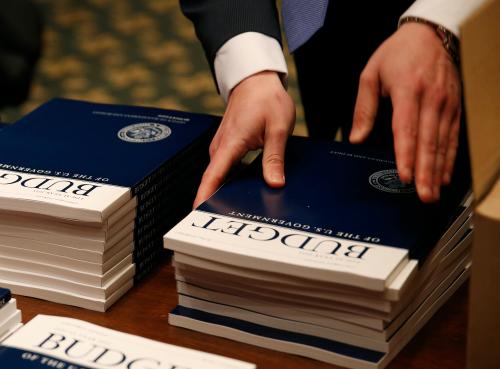The American economy is short of demand. Large businesses have found ways to cut costs and raise productivity and are satisfying the current level of sales for their products or services while adding very few new employees. Many small businesses remain short of customers and cash, and even those that would like to expand are having trouble finding the funding they would need.
The traditional remedy for an economy that is short of demand is to cut interest rates and either cut taxes or increase government spending. None of those options is open to policymakers today because interest rates are already at zero and the massive budget deficits and the lingering global financial crisis make it too risky to expand fiscal policy any further.
Since government lacks the tools to increase demand directly, it must find a way to encourage private households and businesses to invest and spend more. That is a paradox because overspending, especially on housing, triggered the crisis and recession, but today we need more of the hair of the dog that bit us. There was too much spending during the boom, but today there is too little. Businesses and households need to feel more confidence in the future and more willingness to invest in future growth.
By far the most important thing the federal government can do to build confidence is to agree on a ten-year plan to deal with the budget deficit. Any such plan will require higher taxes and cuts in spending. Republicans should stop playing politics with the debt limit—tantamount to playing with matches in a gunpowder factory. And they must back away from their pledge to prevent any new taxes. Instead they should put the long run health of the country ahead of short-term political gains. After all, the bubble economy, the budget deficits, and the deep recession are largely the legacy of Bush’s economic policies, policies they voted for.
President Obama must lay out the plain truth, which is that eventually taxes have to be raised on almost everyone, not just on the rich, and entitlement spending has to be controlled, especially on health care, where overtreatment and overspending are bankrupting the economy. Any patient who wants some super-expensive treatment has the right to have it, provided they pay the full cost themselves. Taxpayers should only pay for or subsidize proven, cost-effective treatments. The president showed courage when he came into office and stabilized an economy in freefall. He showed courage when he took out Osama Bin Laden. He must show courage now to fight for a serious, long-run budget deal that restores confidence and job growth.
Balancing the budget is crucial but timing is everything. Making big cuts in spending this year would be a mistake. There is pretty much a consensus among sensible economists that the first priority is to lock a realistic budget plan in place. After that there might even be room for a small, short-run stimulus this year.
The American economy is resilient and will eventually recover, even if policy makers do not always do the right things. But there really is a lot at stake today. A lost decade of lousy growth is a possibility. Clear leadership from both parties is needed to avoid that outcome.
The Brookings Institution is committed to quality, independence, and impact.
We are supported by a diverse array of funders. In line with our values and policies, each Brookings publication represents the sole views of its author(s).








Commentary
Op-edThe Time to Deal with the Budget Deficit Is Now
July 18, 2011